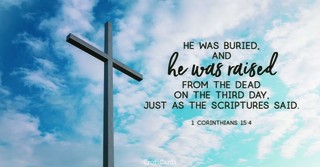
- Recent Translations
- All Translations
Kehillah in Corinth I 15:31
Share
Settings
Kehillah in Corinth I 15:31 Meaning and Commentary
I protest by your rejoicing
Some copies read, "our rejoicing"; and so the Ethiopic version, which seems most natural and easy; since it follows,
which I have in Christ Jesus our Lord;
who in him could rejoice and glory in afflictions and sufferings, which he endured as a preacher of the Gospel for his sake; and which being certain and evident, and what might be depended upon, he makes a protestation by it, saying,
I die daily;
which is to be understood, not in a spiritual sense of dying unto sin; he was dead unto sin, as to its damning power, through the death of Christ, and as to its governing power, through the Spirit and grace of Christ, but still it was living and dwelling in him; but in a corporeal sense: he instances in himself in particular, who was one that was in jeopardy or danger of his life every hour; he always bore in his body the dying of the Lord Jesus, and was continually delivered to death for Jesus' sake; death was always working in him, he expected it every day, and was ready for it; he did not count his life dear unto himself, but was very willing to lay it down for the sake of Christ and his Gospel; which he would never have done, if he had not good reason to believe the doctrine of the resurrection of the dead.
